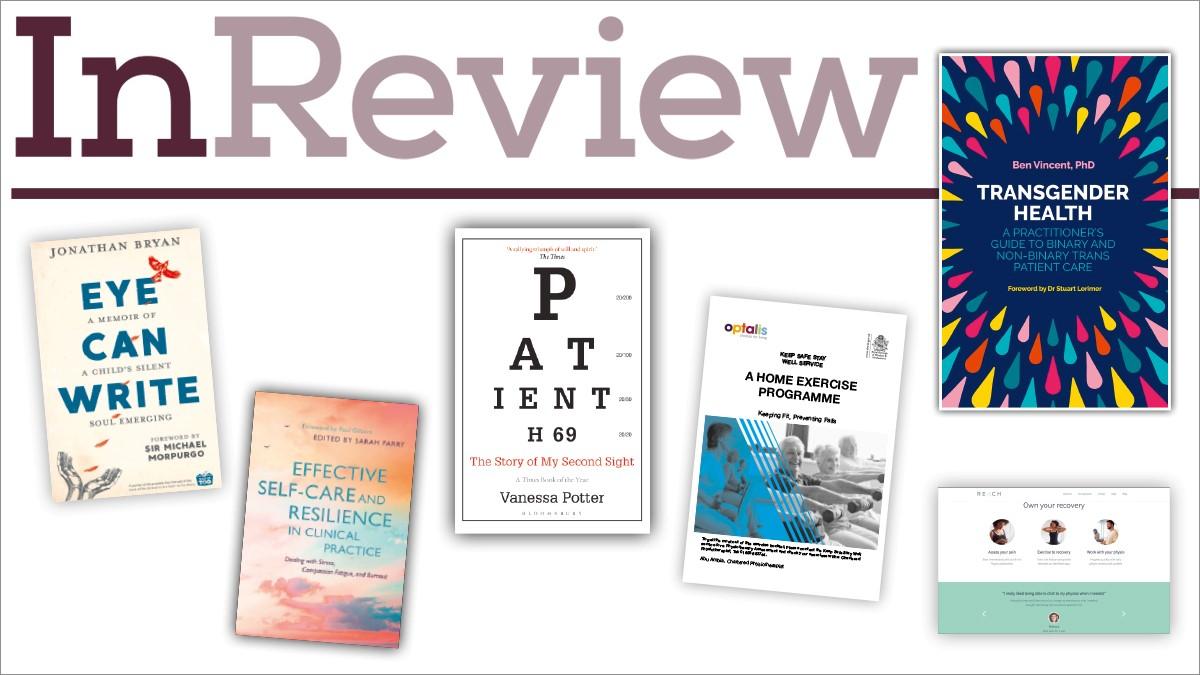Our featured book 'Transgender Health: A Practitioner's Guide shows how to sensitively treat and care for transgender patients in healthcare settings. Read on...

Transgender Health: A Practitioner’s Guide to Binary and Non-Binary Trans Patient Care Ben Vincent PhD Jessica Kingsley Publishing ISBN 9781785922015
Transgender patients can feel daunted by, and wary of, seeking healthcare – related to transition or not – simply because their experience isn’t widely understood. I very much welcome this work by Ben Vincent.Even as a trans person who works in healthcare, the book provided me with a wide range of additional information and advice. To anyone new to the experience of trans patients, it offers a wealth of information, starting with the basics. Practical information includes access to hormone replacement therapy and gender affirmation surgeries through NHS services, gender identity clinic (GIC) locations, length of waiting lists and referral processes.
Vincent also explains that, for trans people, incorrect use of terms can be offensive and frustrating. The definitions given here are not exhaustive or set in stone because, as in any community, words are adapted over time and some become outdated. Vincent – whose chosen pronoun is they – strongly advises asking patients which words and pronouns they prefer.
While similar books focus more on the binary genders (male and female), non-binary identities have an equal discussion and value here. All allied health professionals and medical staff would benefit from reading it because the number of people seeking referrals to GICs has increased significantly, so the chances of physios and AHPs treating trans patients are greater.
Vincent helps to highlight that trans people are not all the same. We’ve all had different experiences and don’t all want to be treated in the same way. So how healthcare workers communicate is key. Don’t be afraid to ask patients what they would like from you. If you lack confidence in, and knowledge about, how to have this conversation, consider reading this book or researching into current best practice. The CSP’s LGBT+ Network is well placed to assist with specific queries and transgender patient guidance documents can be found on the CSP’s website.
- Zack Jepson is a community physiotherapist for East Sussex Healthcare NHS Trust
Eye Can Write Jonathan Bryan Blink Publishing ISBN 1911600788
A memoir by a 12-year-old boy who has severe cerebral palsy and can’t speak, or move voluntarily. Jonathan Bryan was locked in an interior world until he learned to communicate with his eyes and, via his mother, express his thoughts. Doesn’t read as if written by a child – his vocabulary, insight and understanding are wondrous.
Effective Self-Care and Resilience in Clinical Practice Ed Dr Sarah Parry Jessica Kingsley Publishing ISBN 9781785920707
Useful collection of essays by health and social care practitioners designed to help fellow professionals avoid/deal with stress, compassion fatigue and burnout. Each contributor shares their experience in engaging with patients/clients and offers guidance and ideas.
Patient H69: The Story of my Second Sight Vanessa Potter Bloomsbury ISBN 9781472936103
Vanessa Potter – a TV producer and mother of two – suddenly lost her sight and sense of touch. Follow her recovery and meticulous investigation into what had happened and the impact on herself and her family, as she transforms a catastrophe into a scientific adventure.
Home Exercise Programme Abu Ambia Optalis
Thoughtfully produced in user-friendly large print, this is designed to help older patients keep fit, prevent falls and improve bone and muscle strength, and balance. Abu Ambia is a physio who wanted to provide a clear guide for patients to use at home. For an electronic copy, email Abu.Ambia@RBWM.gov.uk
Reach Active
An app by a team of physios to make musculoskeletal treatment work in the home for patients. A physio app isn’t a substitute for one-to-one physio but could complement or continue treatment through a 10-week interactive exercise programme. Patients complete an online assessment that is screened for red flags, then receive a personal programme. Patients can also chat to a physio via the app: www.reachactive.co/
Number of subscribers: 1




































